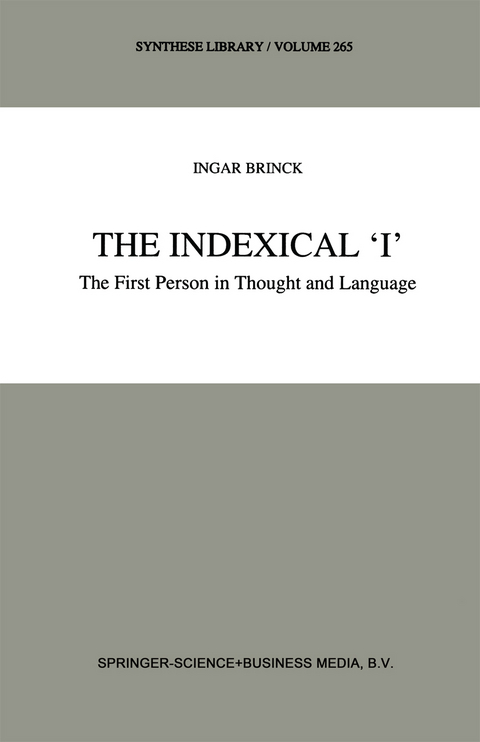
The Indexical ‘I’
Springer (Verlag)
978-0-7923-4741-5 (ISBN)
1. Introduction.- 1.1 The topic.- 1.2 ‘I’.- 1.3 Why ‘I’ cannot be replaced by another indexical.- 1.4 The content.- 2. ‘I’ Does Not Refer.- 2.1 The non-referential thesis.- 2.2 Wittgenstein on ‘I’.- 2.3 Anscombe’s argument.- 2.4 Immunity to error through misidentification.- 2.5 The basis of the immunity.- 3. ‘I’ Refers Directly.- 3.1 The minimal thesis.- 3.2 Direct reference.- 3.3 The semantic theory of direct reference.- 3.4 Direct reference and rigid designation.- 3.5 Rigid designation and essentialism.- 3.6 Objections to the semantic theory of direct reference.- 3.7 Perry on belief and meaning.- 3.8 Direct reference, presemantics, and pragmatics.- 3.9 Attitudes de se.- 3.10 Acquaintance and direct reference.- 4. ‘I’ Refers Indirectly.- 4.1 Indirect reference and definite descriptions.- 4.2 Frege on ‘I’.- 4.3 Does the individual concept conflict with publicness?.- 4.4 Making sense of Frege: concepts and causes.- 4.5 Making sense of Frege: the individual concept.- 5. Indexicality andNon-Conceptual Content.- 5.1 The basis of de re senses: non-conceptual content.- 5.2 Identification-free knowledge and its foundation.- 5.3 Non-conceptual content and IEM.- 5.4 Can content be non-conceptual?.- 5.5 The cognitive role of de re senses.- 6. Context-Independence.- 6.1 Speakers and persons.- 6.2 Transcending the context.- 6.3 Identity over time.- 6.4 A view from nowhere?.- 6.5 Understanding ‘I’: conclusion.- References.
| Erscheint lt. Verlag | 31.8.1997 |
|---|---|
| Reihe/Serie | Synthese Library ; 265 |
| Zusatzinfo | XII, 179 p. |
| Verlagsort | Dordrecht |
| Sprache | englisch |
| Maße | 156 x 234 mm |
| Themenwelt | Geisteswissenschaften ► Philosophie ► Erkenntnistheorie / Wissenschaftstheorie |
| Geisteswissenschaften ► Philosophie ► Sprachphilosophie | |
| ISBN-10 | 0-7923-4741-2 / 0792347412 |
| ISBN-13 | 978-0-7923-4741-5 / 9780792347415 |
| Zustand | Neuware |
| Haben Sie eine Frage zum Produkt? |
aus dem Bereich

![Was heißt Denken?. Vorlesung Wintersemester 1951/52. [Was bedeutet das alles?] - Martin Heidegger](/media/113619842)
